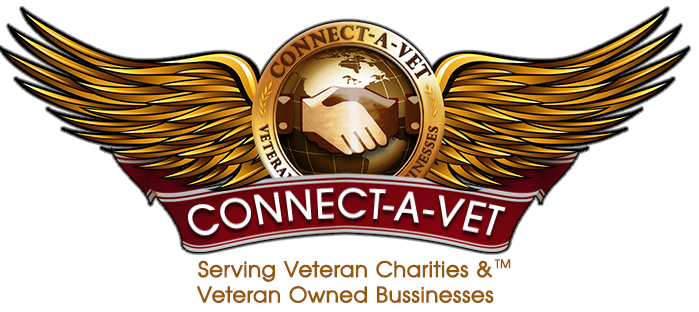For veterans and others suffering from Post-Traumatic Stress Disorder (PTSD) and Traumatic Brain Injury (TBI), the conventional approach to treatment often involves the use of pharmaceutical drugs. While these medications can offer short-term relief from symptoms like anxiety, depression, and insomnia, they come with a range of side effects and the potential for dependency. In recent years, there has been a growing interest in holistic and natural approaches to managing PTSD and TBI, as these methods focus on healing the mind, body, and spirit without relying on harsh chemical-based medications. This holistic approach offers a path to recovery that is sustainable, empowering, and in tune with the body’s natural processes.
The Drawbacks of Pharmaceutical Approaches
Pharmaceutical treatments for PTSD and TBI often include antidepressants, antianxiety medications, and sleep aids. While these drugs can provide temporary relief, they do not address the underlying causes of the conditions and can lead to a reliance on medication for managing symptoms. Over time, patients may
experience a range of side effects, including weight gain, fatigue, cognitive impairment, and, in some cases, worsening mental health issues. The numbing effect of these medications can also prevent patients from fully engaging with their emotions and experiences, which is crucial for long-term healing. Moreover, the focus on symptom management rather than holistic healing can leave patients feeling disconnected from their own recovery process. This approach can also overlook the importance of addressing the physical, emotional, and spiritual aspects of PTSD and TBI, which are all interconnected.
A Holistic Approach: Healing the Whole Person
A holistic approach to overcoming PTSD and TBI involves treating the entire person, not just the symptoms. This method emphasizes natural and organic solutions that work with the body’s natural healing processes rather than against them. By addressing the root causes of trauma and brain injury, a holistic approach aims to restore balance and promote long-term wellness.
Nutritional Therapy: Food as Medicine
One of the foundational elements of a holistic approach is nutritional therapy. The brain requires proper nutrition to function optimally, and a diet rich in whole, organic foods can have a profound impact on mental health. Omega-3 fatty acids, found in fish oil and flaxseed, are known to support brain health and reduce inflammation. Antioxidant-rich foods like berries, leafy greens, and nuts can protect brain cells from damage and promote healing.
Incorporating a diet that is free from processed foods, artificial additives, and excessive sugars can also help stabilize mood and improve cognitive function. For those suffering from PTSD and TBI, a focus on nutrient-dense, organic foods can be a powerful tool in managing symptoms and promoting recovery.
Herbal Remedies: Nature’s Healing Power
Herbal remedies have been used for centuries to treat a variety of ailments, and they can be particularly effective in addressing the symptoms of PTSD and TBI. Adaptogenic herbs like ashwagandha, rhodiola, and ginseng help the body adapt to stress, reduce anxiety, and improve cognitive function. These herbs support the adrenal system, which is often overtaxed in individuals with PTSD, helping to restore balance to the body’s stress response.
Other herbs, such as valerian root and chamomile, can be used to promote relaxation and improve sleep, offering a natural alternative to pharmaceutical sleep aids. St. John’s Wort is another herb that has been traditionally used to treat depression and mood disorders, providing a natural option for those seeking relief from the emotional symptoms of PTSD.
Mind-Body Practices: Integrating Physical and Mental Health
Mind-body practices such as yoga, meditation, and tai chi play a crucial role in a holistic approach to PTSD and TBI. These practices help to calm the nervous system, reduce stress, and improve emotional regulation. Yoga, in particular, has been shown to increase levels of gamma-aminobutyric acid (GABA) in the brain, a neurotransmitter that helps to calm the mind and alleviate anxiety.
Meditation practices, including mindfulness and guided imagery, can help individuals process traumatic experiences and develop a greater sense of inner peace. These practices also promote neuroplasticity, the brain’s ability to rewire itself, which is particularly important in the recovery from TBI.
In addition to promoting mental and emotional well-being, mind-body practices also improve physical health by increasing flexibility, strength, and circulation. This integrated approach helps to heal both the body and the mind, offering a more comprehensive path to recovery.
Acupuncture and Energy Healing: Restoring Balance
Acupuncture, a practice rooted in traditional Chinese medicine, has gained recognition for its ability to reduce symptoms of PTSD and TBI. By stimulating specific points on the body, acupuncture helps to balance the flow of energy (Qi) and promote healing. It has been shown to reduce anxiety, improve sleep, and alleviate chronic pain, making it a valuable tool in a holistic treatment plan.
Energy healing practices such as Reiki and healing touch also play a role in restoring balance and promoting recovery. These practices work on the premise that trauma and stress can disrupt the body’s energy field, leading to physical and emotional imbalances. By gently realigning this energy, these healing practices can help to release stored trauma and promote a sense of calm and well-being.
The Role of Community and Connection
Finally, a holistic approach to PTSD and TBI recognizes the importance of community and connection in the healing process. Social support from family, friends, and support groups is vital for emotional healing. Engaging in activities that promote connection, such as group therapy, community service, or creative
expression, can help individuals feel supported and understood.
Veteran-led support groups, as mentioned earlier, offer a unique form of camaraderie and understanding that is crucial for those recovering from PTSD and TBI. These groups provide a safe space for veterans to share their experiences and learn from others who have successfully navigated their own healing journeys.
Conclusion: A Path to True Healing
A holistic approach to overcoming PTSD and TBI offers a path to true healing that goes beyond symptom management. By focusing on natural and organic solutions, this approach promotes balance, well-being, and empowerment. It allows individuals to take an active role in their recovery, working with their body’s natural processes to heal the mind, body, and spirit.
While pharmaceutical drugs have their place in the treatment of PTSD and TBI, a holistic approach offers a sustainable and empowering alternative that addresses the root causes of these conditions. Through nutritional therapy, herbal remedies, mind-body practices, acupuncture, energy healing, and the support of a caring community, individuals can find a path to recovery that is in harmony with their body’s natural rhythms and leads to long-lasting wellness.

